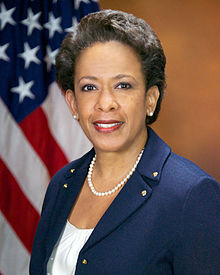Fired FBI director James B. Comey’s much-anticipated appearance before the Senate Intelligence Committee today did contain three surprises. Keeping it brief, I’d rather highlight the three than recap everything that will be covered by every media outlet.
It was pretty much a given that Comey would fire back at the man who fired him and would accuse President Trump of lying, that questions from most of the Democrats on the Committee would focus on Trump, and that Republicans’ questions would defend him. It was also a given that some things would not be aired “in an open setting,” to use Comey’s phrase; the Committee was scheduled to hold a closed hearing at 1:00 p.m. Any discussion of the salacious Steele dossier would be reserved for the closed session. It was also a given that Comey would exonerate himself to the maximum extent possible–admit what you can’t deny, deny what you can’t admit. He’s done it before. He also made clear again, as in his prepared remarks (below), that Trump was not the subject of an investigation.
Thus we can skip over Senator Mark Warner’s introductory remarks and Comey’s prefatory comments about his firing, the FBI, and the Russian investigation, already much covered in cable commentary and in print. Pull quote: “Those were lies, plain and simple.”
Senator Burr’s opening questions established Comey’s position that Russia tried to intervene in the election–“no doubt”–but that the interference did not extend to altering votes. Comey also negatived a question whether anyone asked him to stop the Russian investigation. However, he left open the suggestion that criminal aspects not connected with the 2016 election may turn up. Plenty of room for investigation, by both special counsel and Congress. He also commented matter-of-factly and accurately that “There’s all kinds of cyber intrusions going on all the time” — “hundreds” “at least” — but that the 2016 election was the first he knew of affecting the DNC. Comey also said, in response to questions, that the FBI did not have direct access to the DNC hardware but got it via a third party, by spring 2016.
Surprise 1. Comey said again that he had decided to go public with his July 2016 statement about the Clinton email investigation to protect the credibility of the FBI and of the investigation. Specifically, he was concerned by former president Bill Clinton’s meeting with Attorney General Loretta Lynch. Saying that there was one significant item he could not talk about publicly, he said that there was one he could: Attorney General Lynch directed him to call it a “matter,” not an “investigation.” Comey reiterated the statement in response to subsequent questions. (The law prof has since been identified in the press.)
Surprise 2. During questions from Senator Susan Collins, Comey stated that he “asked a friend of mine to share the contents” of his writing with a reporter. The friend was a law professor, “a good friend of mine at Columbia Law School. ” His self-created source–a person close to Comey, as they say–passed the notes along to the New York Times. According to Comey, this transmission took place after the president tweeted about “tapes.” Comey also said he hopes there were tapes and would consent to their release.
(Hypothetically–suppose Trump had accused Comey of leaking, even through a law-prof friend, to the NYTimes. What would the media reaction have been?)
Surprise 3. Senator John McCain seemed so confused that he sounded like a different person. Twice McCain said “Comey” when referring to President Trump. In a short series of disjointed questions, he accused Comey of having a “double standard” as to the Clinton email investigation and the Russian investigation. To this partisan talking point, McCain seemed to add a suggestion linking the Clinton campaign to Russia. The logical guess is that McCain meant the Ukraine, and Ukraine’s efforts to interfere on behalf of Clinton–but referred to Ukraine as “Russia.” (McCain still got off a reasonably good question. When Trump referred to “that thing” to Comey, why didn’t Comey ask him what “that thing” was? – Comey: it didn’t seem important. McCain: “I think I would have had some curiosity, if it had been about me.”)
The rest of the back-and-forth and questioning was punctuated by a few Comey answers quickly given, then quickly amended. Three examples:
When Angus King (I-Maine) asked Comey whether he had ever called the president, he immediately said no. But–“once I was asked to call the White House switchboard”–so he did.
When Joe Manchin (D-West Virginia) asked Comey whether the president had ever asked him about Russian interference in the election, Comey instantly responded no. Then he said he thought “there was an initial briefing” about Russia and the election, with “conversation” and “questions.” (Manchin also asked Comey, “Do you believe you would have been fired if Hillary Clinton had become president?” Comey: “I don’t know.” “I might have been.”)
When Manchin then asked Comey whether he had talked with Sessions about why Sessions wasn’t in the room (with Trump and Comey), he said no. But–“I did talk to him and said, you have to be [etc.],” but Comey did not tell Sessions about the Flynn conversation.
Further parsing if any will have to wait for a later date. For now, the wrap-up is that new Senator Kamala Harris (D-California) has a laudable ability to cover a lot of ground quickly, concisely, and clearly. Her questions included the following:
Any meetings of Trump officials and Russian officials during campaign, not acknowledged? Any encrypted communications? Anything destroyed? Any efforts to conceal? – Comey: all these Qs not to be dealt with in open session.
Harris: The parameters of Sessions’ recusal? – Any written notice or memo about it? – Comey: don’t know.
Harris: Should Mueller have full authority to pursue his investigation, full independence? – Comey: yes.
Statement for the Record
Senate Select Committee on Intelligence
James B. Comey
June 8, 2017
Chairman Burr, Ranking Member Warner, Members of the Committee.
Thank you for inviting me to appear before you today. I was asked to testify today to describe for you my interactions with President-Elect and President Trump on subjects that I understand are of interest to you. I have not included every detail from my conversations with the President, but, to the best of my recollection, I have tried to include information that may be relevant to the Committee.
January 6 Briefing
I first met then-President-Elect Trump on Friday, January 6 in a conference room at Trump Tower in New York. I was there with other Intelligence Community (IC) leaders to brief him and his new national security team on the findings of an IC assessment concerning Russian efforts to interfere in the election. At the conclusion of that briefing, I remained alone with the President Elect to brief him on some personally sensitive aspects of the information assembled during the assessment.
The IC leadership thought it important, for a variety of reasons, to alert the incoming President to the existence of this material, even though it was salacious and unverified. Among those reasons were: (1) we knew the media was about to publicly report the material and we believed the IC should not keep knowledge of the material and its imminent release from the President-Elect; and (2) to the extent there was some effort to compromise an incoming President, we could blunt any such effort with a defensive briefing.
The Director of National Intelligence asked that I personally do this portion of the briefing because I was staying in my position and because the material implicated the FBI’s counter-intelligence responsibilities. We also agreed I would do it alone to minimize potential embarrassment to the President-Elect. Although we agreed it made sense for me to do the briefing, the FBI’s leadership and I were concerned that the briefing might create a situation where a new President came into office uncertain about whether the FBI was conducting a counter-intelligence investigation of his personal conduct.
It is important to understand that FBI counter-intelligence investigations are different than the more-commonly known criminal investigative work. The Bureau’s goal in a counter-intelligence investigation is to understand the technical and human methods that hostile foreign powers are using to influence the United States or to steal our secrets. The FBI uses that understanding to disrupt those efforts. Sometimes disruption takes the form of alerting a person who is targeted for recruitment or influence by the foreign power. Sometimes it involves hardening a computer system that is being attacked. Sometimes it involves “turning” the recruited person into a double-agent, or publicly calling out the behavior with sanctions or expulsions of embassy-based intelligence officers. On occasion, criminal prosecution is used to disrupt intelligence activities.
Because the nature of the hostile foreign nation is well known, counterintelligence investigations tend to be centered on individuals the FBI suspects to be witting or unwitting agents of that foreign power. When the FBI develops reason to believe an American has been targeted for recruitment by a foreign power or is covertly acting as an agent of the foreign power, the FBI will “open an investigation” on that American and use legal authorities to try to learn more about the nature of any relationship with the foreign power so it can be disrupted.
In that context, prior to the January 6 meeting, I discussed with the FBI’s leadership team whether I should be prepared to assure President-Elect Trump that we were not investigating him personally. That was true; we did not have an open counter-intelligence case on him. We agreed I should do so if circumstances warranted. During our one-on-one meeting at Trump Tower, based on President Elect Trump’s reaction to the briefing and without him directly asking the question, I offered that assurance.
I felt compelled to document my first conversation with the President-Elect in a memo. To ensure accuracy, I began to type it on a laptop in an FBI vehicle outside Trump Tower the moment I walked out of the meeting. Creating written records immediately after one-on-one conversations with Mr. Trump was my practice from that point forward. This had not been my practice in the past. I spoke alone with President Obama twice in person (and never on the phone) — once in 2015 to discuss law enforcement policy issues and a second time, briefly, for him to say goodbye in late 2016. In neither of those circumstances did I memorialize the discussions. I can recall nine one-on-one conversations with President Trump in four months — three in person and six on the phone.
January 27 Dinner
The President and I had dinner on Friday, January 27 at 6:30 pm in the Green Room at the White House. He had called me at lunchtime that day and invited me to dinner that night, saying he was going to invite my whole family, but decided to have just me this time, with the whole family coming the next time. It was unclear from the conversation who else would be at the dinner, although I assumed there would be others.
It turned out to be just the two of us, seated at a small oval table in the center of the Green Room. Two Navy stewards waited on us, only entering the room to serve food and drinks.
The President began by asking me whether I wanted to stay on as FBI Director, which I found strange because he had already told me twice in earlier conversations that he hoped I would stay, and I had assured him that I intended to. He said that lots of people wanted my job and, given the abuse I had taken during the previous year, he would understand if I wanted to walk away.
My instincts told me that the one-on-one setting, and the pretense that this was our first discussion about my position, meant the dinner was, at least in part, an effort to have me ask for my job and create some sort of patronage relationship. That concerned me greatly, given the FBI’s traditionally independent status in the executive branch.
I replied that I loved my work and intended to stay and serve out my ten-year term as Director. And then, because the set-up made me uneasy, I added that I was not “reliable” in the way politicians use that word, but he could always count on me to tell him the truth. I added that I was not on anybody’s side politically and could not be counted on in the traditional political sense, a stance I said was in his best interest as the President.
A few moments later, the President said, “I need loyalty, I expect loyalty.” I didn’t move, speak, or change my facial expression in any way during the awkward silence that followed. We simply looked at each other in silence. The conversation then moved on, but he returned to the subject near the end of our dinner. At one point, I explained why it was so important that the FBI and the Department of Justice be independent of the White House. I said it was a paradox: Throughout history, some Presidents have decided that because “problems” come from Justice, they should try to hold the Department close. But blurring those boundaries ultimately makes the problems worse by undermining public trust in the institutions and their work.
Near the end of our dinner, the President returned to the subject of my job, saying he was very glad I wanted to stay, adding that he had heard great things about me from Jim Mattis, Jeff Sessions, and many others. He then said, “I need loyalty.” I replied, “You will always get honesty from me.” He paused and then said, “That’s what I want, honest loyalty.” I paused, and then said, “You will get that from me.” As I wrote in the memo I created immediately after the dinner, it is possible we understood the phrase “honest loyalty” differently, but I decided it wouldn’t be productive to push it further. The term — honest loyalty — had helped end a very awkward conversation and my explanations had made clear what he should expect.
During the dinner, the President returned to the salacious material I had briefed him about on January 6, and, as he had done previously, expressed his disgust for the allegations and strongly denied them. He said he was considering ordering me to investigate the alleged incident to prove it didn’t happen. I replied that he should give that careful thought because it might create a narrative that we were investigating him personally, which we weren’t, and because it was very difficult to prove a negative. He said he would think about it and asked me to think about it.
As was my practice for conversations with President Trump, I wrote a detailed memo about the dinner immediately afterwards and shared it with the senior leadership team of the FBI.
February 14 Oval Office Meeting
On February 14, I went to the Oval Office for a scheduled counterterrorism briefing of the President. He sat behind the desk and a group of us sat in a semi-circle of about six chairs facing him on the other side of the desk. The Vice President, Deputy Director of the CIA, Director of the National CounterTerrorism Center, Secretary of Homeland Security, the Attorney General, and I were in the semi-circle of chairs. I was directly facing the President, sitting between the Deputy CIA Director and the Director of NCTC. There were quite a few others in the room, sitting behind us on couches and chairs.
The President signaled the end of the briefing by thanking the group and telling them all that he wanted to speak to me alone. I stayed in my chair. As the participants started to leave the Oval Office, the Attorney General lingered by my chair, but the President thanked him and said he wanted to speak only with me. The last person to leave was Jared Kushner, who also stood by my chair and exchanged pleasantries with me. The President then excused him, saying he wanted to speak with me.
When the door by the grandfather clock closed, and we were alone, the President began by saying, “I want to talk about Mike Flynn.” Flynn had resigned the previous day. The President began by saying Flynn hadn’t done anything wrong in speaking with the Russians, but he had to let him go because he had misled the Vice President. He added that he had other concerns about Flynn, which he did not then specify.
The President then made a long series of comments about the problem with leaks of classified information — a concern I shared and still share. After he had spoken for a few minutes about leaks, Reince Priebus leaned in through the door by the grandfather clock and I could see a group of people waiting behind him. The President waved at him to close the door, saying he would be done shortly. The door closed.
The President then returned to the topic of Mike Flynn, saying, “He is a good guy and has been through a lot.” He repeated that Flynn hadn’t done anything wrong on his calls with the Russians, but had misled the Vice President. He then said, “I hope you can see your way clear to letting this go, to letting Flynn go. He is a good guy. I hope you can let this go.” I replied only that “he is a good guy.” (In fact, I had a positive experience dealing with Mike Flynn when he was a colleague as Director of the Defense Intelligence Agency at the beginning of my term at FBI.) I did not say I would “let this go.”
The President returned briefly to the problem of leaks. I then got up and left out the door by the grandfather clock, making my way through the large group of people waiting there, including Mr. Priebus and the Vice President.
I immediately prepared an unclassified memo of the conversation about Flynn and discussed the matter with FBI senior leadership. I had understood the President to be requesting that we drop any investigation of Flynn in connection with false statements about his conversations with the Russian ambassador in December. I did not understand the President to be talking about the broader investigation into Russia or possible links to his campaign. I could be wrong, but I took him to be focusing on what had just happened with Flynn’s departure and the controversy around his account of his phone calls. Regardless, it was very concerning, given the FBI’s role as an independent investigative agency.
The FBI leadership team agreed with me that it was important not to infect the investigative team with the President’s request, which we did not intend to abide. We also concluded that, given that it was a one-on-one conversation, there was nothing available to corroborate my account. We concluded it made little sense to report it to Attorney General Sessions, who we expected would likely recuse himself from involvement in Russia-related investigations. (He did so two weeks later.) The Deputy Attorney General’s role was then filled in an acting capacity by a United States Attorney, who would also not be long in the role. After discussing the matter, we decided to keep it very closely held, resolving to figure out what to do with it down the road as our investigation progressed. The investigation moved ahead at full speed, with none of the investigative team members — or the Department of Justice lawyers supporting them — aware of the President’s request.
Shortly afterwards, I spoke with Attorney General Sessions in person to pass along the President’s concerns about leaks. I took the opportunity to implore the Attorney General to prevent any future direct communication between the President and me. I told the AG that what had just happened — him being asked to leave while the FBI Director, who reports to the AG, remained behind — was inappropriate and should never happen. He did not reply. For the reasons discussed above, I did not mention that the President broached the FBI’s potential investigation of General Flynn.
March 30 Phone Call
On the morning of March 30, the President called me at the FBI. He described the Russia investigation as “a cloud” that was impairing his ability to act on behalf of the country. He said he had nothing to do with Russia, had not been involved with hookers in Russia, and had always assumed he was being recorded when in Russia. He asked what we could do to “lift the cloud.” I responded that we were investigating the matter as quickly as we could, and that there would be great benefit, if we didn’t find anything, to our having done the work well. He agreed, but then re-emphasized the problems this was causing him.
Then the President asked why there had been a congressional hearing about Russia the previous week — at which I had, as the Department of Justice directed, confirmed the investigation into possible coordination between Russia and the Trump campaign. I explained the demands from the leadership of both parties in Congress for more information, and that Senator Grassley had even held up the confirmation of the Deputy Attorney General until we briefed him in detail on the investigation. I explained that we had briefed the leadership of Congress on exactly which individuals we were investigating and that we had told those Congressional leaders that we were not personally investigating President Trump. I reminded him I had previously told him that. He repeatedly told me, “We need to get that fact out.” (I did not tell the President that the FBI and the Department of Justice had been reluctant to make public statements that we did not have an open case on President Trump for a number of reasons, most importantly because it would create a duty to correct, should that change.)
The President went on to say that if there were some “satellite” associates of his who did something wrong, it would be good to find that out, but that he hadn’t done anything wrong and hoped I would find a way to get it out that we weren’t investigating him.
In an abrupt shift, he turned the conversation to FBI Deputy Director Andrew McCabe, saying he hadn’t brought up “the McCabe thing” because I had said McCabe was honorable, although McAuliffe was close to the Clintons and had given him (I think he meant Deputy Director McCabe’s wife) campaign money. Although I didn’t understand why the President was bringing this up, I repeated that Mr. McCabe was an honorable person.
He finished by stressing “the cloud” that was interfering with his ability to make deals for the country and said he hoped I could find a way to get out that he wasn’t being investigated. I told him I would see what we could do, and that we would do our investigative work well and as quickly as we could.
Immediately after that conversation, I called Acting Deputy Attorney General Dana Boente (AG Sessions had by then recused himself on all Russia-related matters), to report the substance of the call from the President, and said I would await his guidance. I did not hear back from him before the President called me again two weeks later.
April 11 Phone Call
On the morning of April 11, the President called me and asked what I had done about his request that I “get out” that he is not personally under investigation. I replied that I had passed his request to the Acting Deputy Attorney General, but I had not heard back. He replied that “the cloud” was getting in the way of his ability to do his job. He said that perhaps he would have his people reach out to the Acting Deputy Attorney General. I said that was the way his request should be handled. I said the White House Counsel should contact the leadership of DOJ to make the request, which was the traditional channel.
He said he would do that and added, “Because I have been very loyal to you, very loyal; we had that thing you know.” I did not reply or ask him what he meant by “that thing.” I said only that the way to handle it was to have the White House Counsel call the Acting Deputy Attorney General. He said that was what he would do and the call ended.
That was the last time I spoke with President Trump.
###
PAID CONTENT













